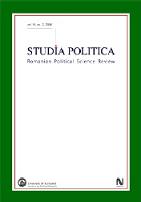Filmul istoric românesc în proiectul construcției „națiunii socialiste“ (1965-1989)
The Role of Historical Film-Making during Ceauºescu’s Dictatorial Regime within the Project of ”Building the Socialist Nation”
Author(s): Mihaela GranceaSubject(s): History
Published by: Editura Universităţii din Bucureşti
Summary/Abstract: Cinematography was deliberately organized, financed and oriented towards the purposes of the system and consequently became the most effective element of political and cultural pedagogy. The synchronic correlation between word and image, the power of visual suggestibility, empathy as an emotional response to the actors’ performance – all these had immediate effects on the collective imaginary, on the perception of reality as a social and identity-forging project determined by the emergence of the ideological discourse. The Romanian socialist cinematography from the time of Ceauºescu synthesized and systemized a coherent and explicit system of values wherein it integrated the message of literary and other artistic works, of variegated forms of cultural expression, so that Romanian cultural axiology could find new possibilities to stand out in strict dependence to the institutional and optional structures of mass culture. The cinema per se thus became a sort of pedagogy for universal use, rendering the past heroic, as it exacerbated the national ego via the instruments of entertainment. Highly permeated ideologically and quasi entirely subordinated to the Communist cultural policies, the cinema production, carried out because of the appeal to emotions and collective memory, thus became part of the official discourse and orientated its issues, especially after the 11th Congress of RCP, according with the political and ideological interests of the national Communist project. The analysis focuses on the Romanian historical films with subjects and episodes relevant for the ancient and mediaeval history, in relation with the efforts of identity reconstruction, coordinated during the Communist regime in relationship with the project of the socialist nation’s building and, after 1989, in relationship with the attempt of reconsolidating, sometimes from a radical perspective, the nationalist mythologies. Socialist patriotism thus incorporated many stereotypes drawn out from the ante-bellum, as well as from the inter-bellum Romanian spirit: the lyric of self-identification expressed by the film soundtrack and by the majestic character of the heroic gestures, the heroic epic obvious in the popular ballad pattern of pre-modern nature, the activist pedagogy specific to all forms of identitarianism. Despite all this ideological infusion, the mythology of Romanian historical films during the Communist nationalist times remains one of a sadistic-masochistic nature, cultivating the fear towards the Other, fatalism, expectation and obedience, all chronic and historicized.
Journal: Studia Politica. Romanian Political Science Review
- Issue Year: 6/2006
- Issue No: 3
- Page Range: 683-709
- Page Count: 1
- Language: Romanian

